'Mid-range BPL needs local talents in its core'
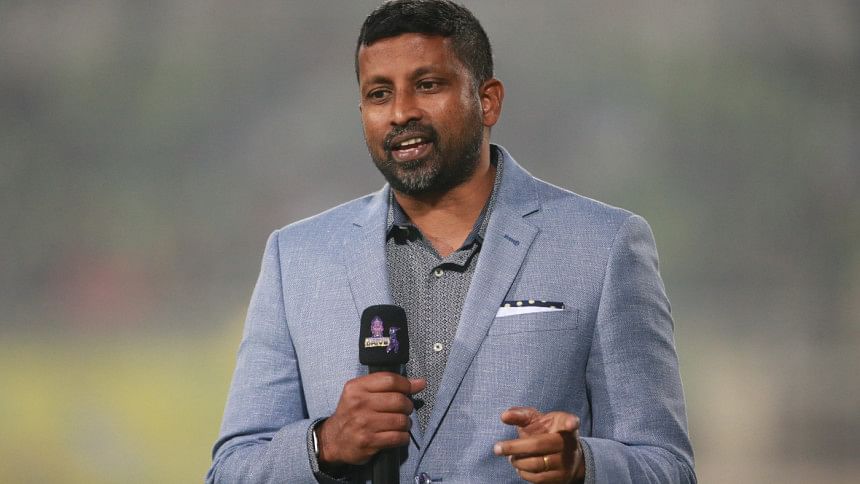
Russel Arnold joining the commentary panel of the ongoing 10th edition of The Bangladesh Premier League (BPL) marked the Sri Lankan's return to the country after nearly eight years since he featured in the commentary box during the ICC Under-19 World Cup in 2016. Even though not a common face during Bangladesh matches, the former Lankan batter did share his thoughts on Bangladesh cricket and BPL among a few other topics during an exclusive interview with Mazhar Uddin of The Daily Star. The excerpts of the interview are below:
The Daily Star (DS): Tell us about your experience here in Bangladesh.
Russel Arnold (RA): It's been good, decent but a lot colder than I anticipated in Dhaka.
DS: When compared to other franchise leagues, how would you rate BPL?
RA: I would say mid-range. Of course, it is hard to compare with leagues like IPL [Indian Premier League] and others. But the support and interest that you see in locals and the fact that the cricket is of a good standard is encouraging.
DS: What are the areas you think the authorities need to focus on in order to make BPL more competitive?
RA: The local talents need to take more responsibility and need to establish themselves as the core of the teams. Because once the local players start performing, the younger players will be given more opportunities and responsibilities. That's when the league will get better and stronger teams. Foreign players are there to be in the mix but the core of the team should be built around the local players and that's one area that could be looked at.
DS: Do you think Bangladesh reached the stage it was expected to since getting the Test status?
RA: No, I don't think so as a lot more could be done with the talent that's around. They haven't made the strides you thought they would have. There have been flashes and glimpses and then the next step is not taken. So, higher standards need to be set and I do think that Bangladesh have shown time and again that they should have been achieving a lot more.
DS: Do you believe Bangladesh need to win a major title -- like Sri Lanka did in 1997 -- for the flourishment of the country's cricketing culture?
RA: A title is always nice because that sets the bar higher and goals that others want to emulate.
DS: As Bangladesh are yet to prove their mettle in the T20 format, what should be the approach from the team in the ICC T20 World Cup later this year?
RA: Playing fearless cricket, believing in themselves, believing that they can compete with the best, and expressing themselves -- that's what Bangladesh need to do. They need to figure out their strength which is more spin-based just like Sri Lanka and try to capitalise on it. Also, the senior players need to lead from the front by performing well.
DS: There has been a sense of rivalry whenever Bangladesh faced Sri Lanka in recent years. What is your take on this growing rivalry?
RA: Rivalry of shenanigans! What I am seeing is that teams have gotten closer, the gap has narrowed and the games are a lot more competitive. But the drama around it is more off the field and that's quite disappointing. I would like to see more focus on the cricket rather than trying to take the mickey out of each other.
DS: A lot of controversy unfolded over the timed-out dismissal of Angelo Matthews during the clash between Bangladesh and Sri Lanka in the ICC ODI World Cup in India last year. What's your take on the incident?
RA: I thought it shouldn't have happened. If you go by the letter of the law, yes, there was a genuine reason why Matthews, at that point, had to bail out. But there was a genuine reason why Matthews was late, and that was when he was about to take guard and his [helmet's] strap came off. So, there was a reason why this situation arose. But things could have been handled differently.
DS: School cricket in Sri Lanka has been playing an immense role in producing future stars. Do you think Bangladesh should also give more emphasis on certain areas to develop the cricketing culture?
RA: Grassroots is always key and also how you fill that gap between grassroots and first-class cricket. But the development of Bangladesh players we are seeing is well on the up as the Under-19s are a lot more competitive than they were. From there on to the national level, that's the gap I think needs to be focused on. Also, the focus should be on to try and uplift the first-class matches as that will make the national team stronger.
DS: Sri Lanka cricket has gone through a tumultuous period recently. Do you feel those incidents have hurt the growth of Sri Lanka cricket?
RA: This never helps but on the other hand, if you look at our part of the world, there's always been issues. But the team has always been bigger than the issues and they have been able to perform when they get on the field with a common goal.

 For all latest news, follow The Daily Star's Google News channel.
For all latest news, follow The Daily Star's Google News channel. 

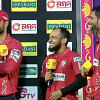
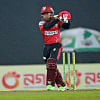
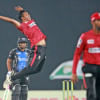

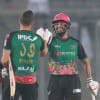


Comments